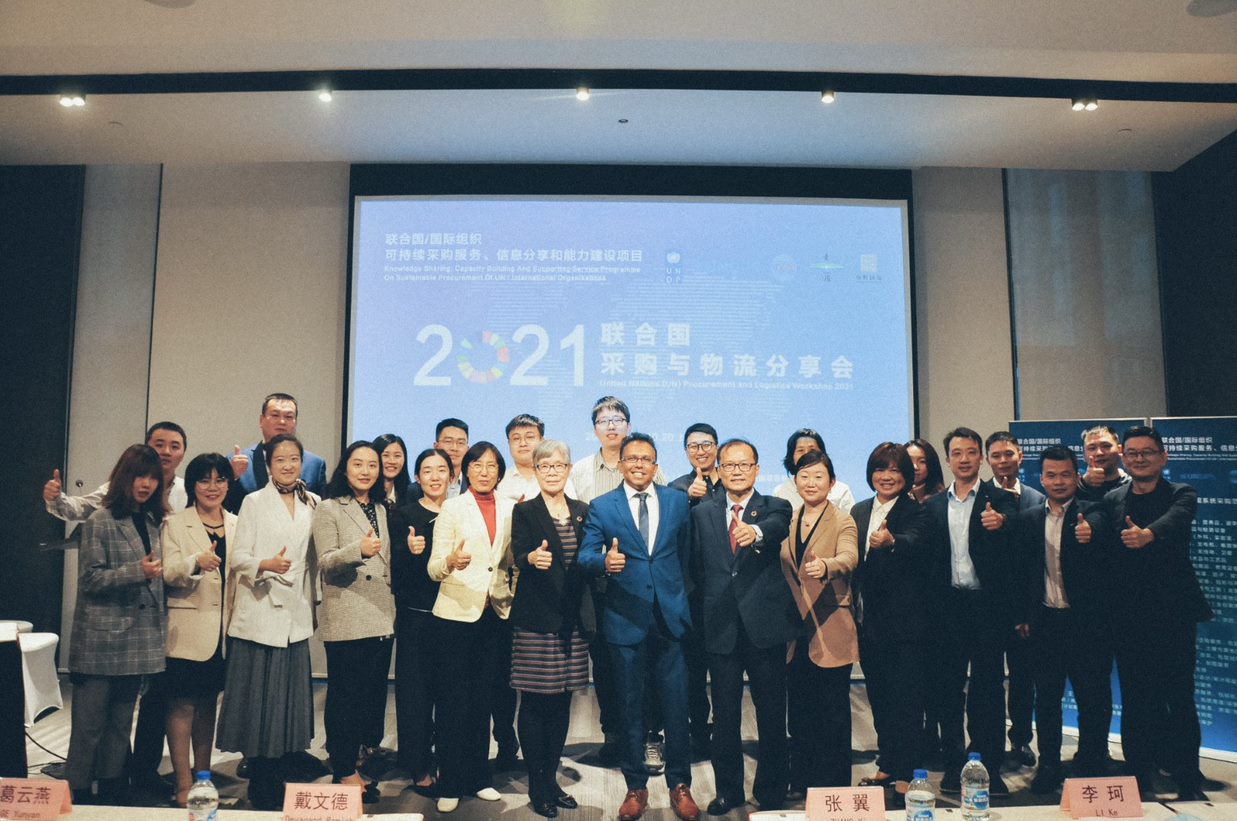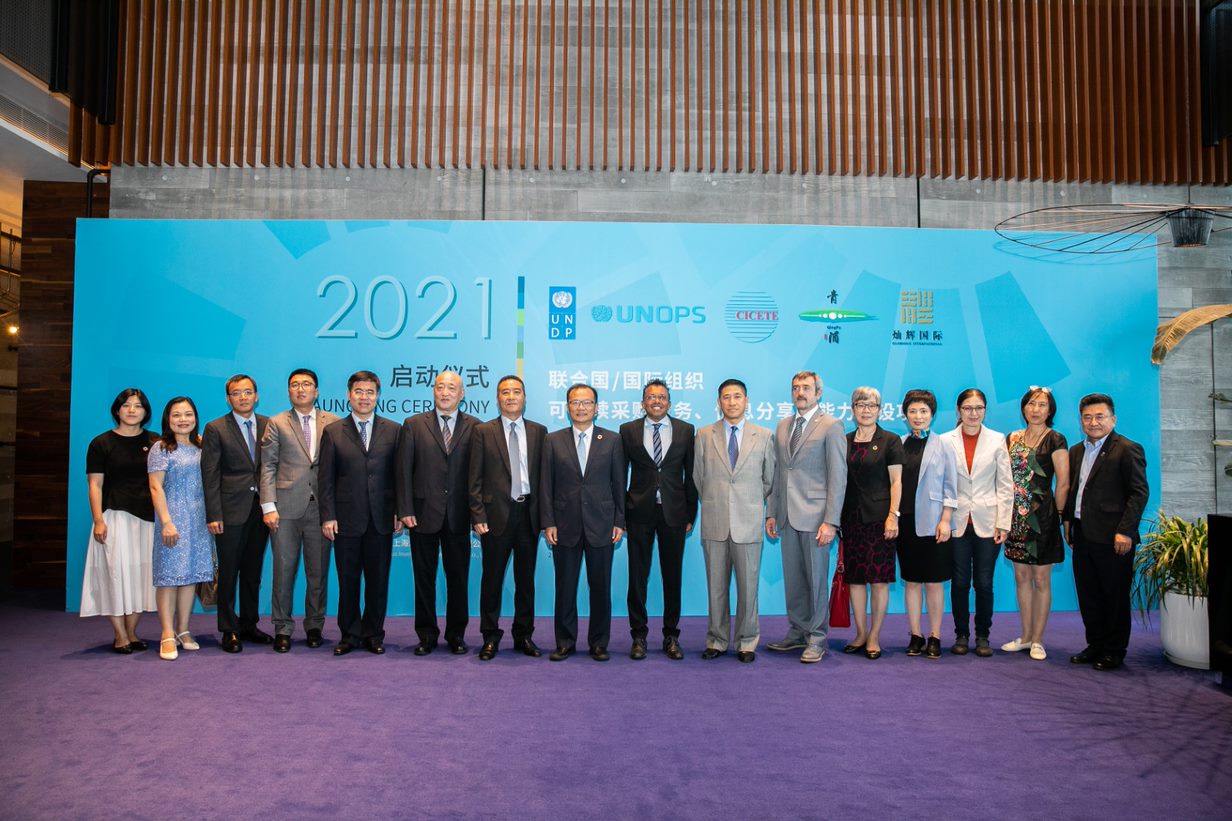The Sustainable Procurement - Shanghai Project
Summary
- The Knowledge Sharing, Capacity Building and Supporting Service Programme on Sustainable Procurement of UN/International Organisations (hereinafter referred to as “The Sustainable Procurement Project”) Sustainable Procurement Project, aims to address China’ carbon footprint by advocating and encouraging sustainable procurement, launching a concerted push to align China’s procurement to sustainable best practices. In addition, the project aims to level the playing field for small and medium enterprises (SMEs) and women-owned businesses (WOBs), by increasing their access to the procurement of international organizations including the UN. SMEs and WOBs are particularly hindered in participating in sustainable procurement by capacity, information deficits, and limited access to support services.
- The Project is jointly initiated by the United Nations Development Programme (UNDP), the United Nations Office for Project Services (UNOPS), the China International Center for Economic and Technical Exchanges (CICETE), Shanghai Qingpu District People’s Government, and Shanghai Glorious Investment Development Co. Ltd.
- The Project is also partnering with UN agencies, including but not limited to UNICEF, WFP, WHO, UNHCR, UNFPA, UN Women, UNIDO with support from the Office of Resident Coordinator in China, as well as other international organisations.

The first United Nations International Procurement Conference in China, held in November 2021
UNDP
Background
- As the world’s largest manufacturing power and a major trading partner to 128 countries, China has enormous potential to reduce its carbon footprint by adopting and advocating sustainable procurement. However, so far there has been no concerted push to adapt sustainable procurement practices in its procurement practices.
- Globally, the UN procurement market is dominated by large businesses with high capacities. This is due to a variety of factors including language barriers, capacity gaps in meeting international standards, knowledge and information deficits and asymmetry, and limited access to support services. According to research by UN Women, less than 1% of WOBs globally have entered the UN procurement market and were successful.
- Thus, there is a pressing need for a platform to deal with the above-mentioned gaps and challenges faced by SMEs and WOBs. Also, providing the suppliers with gender-responsive approaches and best practices to help them align their business production to sustainable standards and best practices in this regard.
- The project is expected to be a pilot for similar initiatives to be scaled up, supporting similar capacity building projects in other countries and regions. Through aligning businesses practices to sustainable ones, this will help achieving the SDGs across the globe by 2030.
Major Achievements
- First United Nations International Procurement Conference in China held in November 2021, helping 230 enterprises from agricultural machinery, medical equipment, electromechanical, textile, medicine, food and other industries gain an intuitive understanding of the United Nations procurement requirements and rules.
- Among the participating enterprises, 52 (23%) were WOBs. Of the 290 business representatives, 148 were women (51%) and 142 were men.
- As of July 2022, more than 300 tenders on UN Global Market have been selectively translated and shared to local suppliers especially SMEs and WOBs.
- Web and mobile versions of a data platform have been officially launched for potential suppliers to obtain tailored information regarding UN procurement.
Project Outcomes
- Improved proactiveness of business on sustainability issues
- Enhanced overall capacity of local businesses, especially SMEs and WOBs, directly engaging with IOs including the UN
- Expanded sourcing capacity & diversified supplier bases of IOs including the UN
- Increased efficiency & effectiveness of procurement processes
GESI Component
- This is a GEN2 project at UNDP China
- This project will focus on gender mainstreaming to ensure that strategies and planned outcomes and activities cater to WOBs. Those efforts include designing targeted capacity building activities, using gender-sensitive methodologies and approaches to collect data and information, supporting the UN and other international organizations empowering WOBs and female entrepreneurs
More
Visit project website: https://unpicbp-sh-ngo.com/

As the world’s largest manufacturing power and a major trading partner to 128 countries, China has enormous potential to reduce its carbon footprint by adopting and advocating sustainable procurement.
UNDP

 Locations
Locations